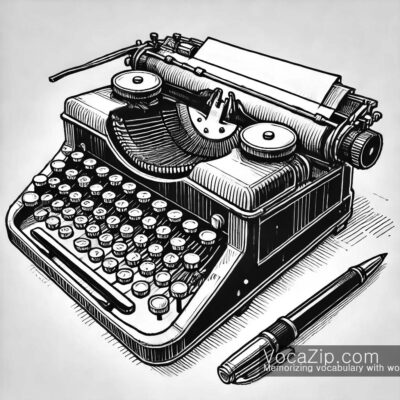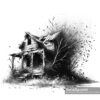obsolete meaning
obsolete :
out of date, no longer in use
adjective
▪ This technology is obsolete.
▪ This technology is no longer used.
▪ The computer is now obsolete.
▪ The computer is no longer needed.
paraphrasing
▪ outdated – out of date
▪ antiquated – very old
▪ old-fashioned – not modern
▪ archaic – very old or old-fashioned

Pronunciation
obsolete [ˈɒbsəliːt]
The stress is on 'so', and it sounds like 'ob-so-leet'.
Common phrases and grammar about obsolete
obsolete - Common meaning
adjective
out of date, no longer in use
Part of Speech Changes for "obsolete"
▪ obsolescence (noun) – the state of being obsolete
▪ obsolescent (adjective) – becoming obsolete
Common Expressions with "obsolete"
▪ obsolete technology – technology that is no longer used
▪ become obsolete – to become out of date
▪ render obsolete – to make something outdated
▪ obsolete equipment – equipment that is no longer needed
Important examples of obsolete in TOEIC
Vocabulary examples from the TOEIC test
In TOEIC vocabulary questions, obsolete is often used to describe outdated technology or methods.
Example of a confusing word: absolute (complete or total)
Grammar examples from the TOEIC test
Obsolete is often used as an adjective to describe nouns like technology, equipment, or methods in TOEIC grammar questions.
obsolete
Idioms and fixed expressions in TOEIC
obsolete technology
'outdated technology', used to describe technology that is no longer in use.
render obsolete
means 'to make something outdated or unnecessary'.
Differences between similar words and obsolete
obsolete
,
outdated
differences
Obsolete means no longer in use, while outdated means not current but still in use.
obsolete
,
antiquated
differences
Obsolete means no longer in use, while antiquated means very old and not useful.
Words with the same origin as obsolete
The origin of obsolete
The word 'obsolete' comes from the Latin 'obsoletus', meaning 'worn out, gone out of use'.
Word structure
It has the prefix ob (away), root solet (to be used), and suffix e (adjective), meaning 'no longer used'.
Words with the same origin
The word's root is unclear or difficult to confirm.
Please select an image in the quiz
Previous post and next post


deteriorate
1778
to become worse, to decline
Verb ┃
Views 7






